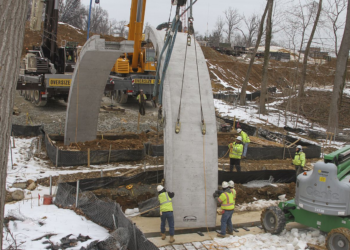The South Caucasus region stands at the threshold of an historic transformation: an era of peace that has eluded our war-torn region for decades. The finalisation of the text of the Armenia-Azerbaijan peace treaty could ensure that neither Armenian nor Azerbaijani children will have to live in conflict and suffer the loss of loved ones.
However, this moment, while filled with hope, also carries grave challenges, as questions remain about Azerbaijan’s true commitment to peace. The Government of Armenia has made a courageous and decisive move to advance the peace process. We have agreed to Azerbaijan’s proposals on the two outstanding points of the treaty: an agreement to withdraw legal cases against each other in international courts; and the removal of third-party forces from the Armenia-Azerbaijan border.
In doing this, my Government has prioritised the greater goal of lasting peace, even in the face of significant cost to itself. Moreover, Prime Minister Pashinyan has announced that he is willing to sign the agreed draft, and proposed to President Aliyev of Azerbaijan that the process for deciding the date and venue for signing a finalised “Agreement on peace and interstate relations” should begin.
This breakthrough follows earlier successes in negotiations, most notably the mutual agreement to use the 1991 Alma-Ata Declaration as the basis for the delimitation of borders. The international community has welcomed this development, with the UK Foreign Secretary rightly urging both sides to move quickly towards signature. Similar endorsements have come from all permanent members of the UN Security Council, the European Union and other international actors, all of whom recognise the potential of this moment to reshape the region’s future.
The finalisation of the peace deal would not be just a bilateral achievement: it is a matter of global significance, with broader implications for security and economic development beyond the South Caucasus too.
Yet, even as Armenia prepares to turn the page on this long-standing conflict, Azerbaijan’s actions cast doubt over its true intentions. A familiar and troubling pattern is emerging, just as the peace process appears to be nearing a conclusion, Azerbaijan introduces fresh demands that delay the finalisation of the treaty. Most concerning are its baseless allegations of ceasefire violations. Earlier this month, Azerbaijan made over a dozen such claims, all of which regional experts and the European Union Observer Mission in Armenia have widely dismissed as groundless.
The Armenian prime minister has implored his Azerbaijan counterpart to provide evidence of any ceasefire violations from the Armenian side, but Azerbaijan has signally failed to do so. The Prime Minister’s Office has also offered to set up a joint mechanism to investigate violations, yet again Azerbaijan has refused to respond. Furthermore, the prime minister has made public his instructions to the Ministry of Defence to strictly adhere to the ceasefire regime, ensuring that no violations will occur.
In 2021, Armenia proposed a reciprocal withdrawal of troops from border areas but Azerbaijan rejected the offer. Yerevan suggested establishing a bilateral mechanism to investigate border incidents; Baku has yet to respond. Against this backdrop, the latest accusations look like an alarming pretext, to either manufacture a casus belli or exploit the current power imbalance to extract concessions.
The Government of Armenia has demonstrated time and again its commitment to peace. Peace is a two-way street. True reconciliation requires mutual trust, respect, and a genuine desire to move on. It is imperative that Azerbaijan abandon its tactics of delay and coercion and embrace the opportunity to end decades of hostility.
Moreover, there remains the critical issue of Armenian prisoners still held in Azerbaijani jails. If Azerbaijan is serious about building a peaceful future free from animosity, it should demonstrate goodwill by releasing all illegally held Armenian detainees.
For the people of Armenia and Azerbaijan, the economic and social benefits of peace are undeniable: cross-border trade, investment and cooperation could usher in a new era of prosperity for both nations. Regional connectivity infrastructure and projects and deeper diplomatic engagement with the broader international community are all within reach.
The choice is clear: peace or a continuation of a tragic history. Armenia has made its choice. Now Azerbaijan can demonstrate its own commitment to regional stability by doing the same. Signing this agreement is a demonstration of strength — the strength to prioritise the well-being of future generations over political ambitions. The time for delaying tactics and inflammatory rhetoric is over.
Armenia has extended the olive branch. It is now up to Azerbaijan to sign the treaty so we can share a peaceful future.







